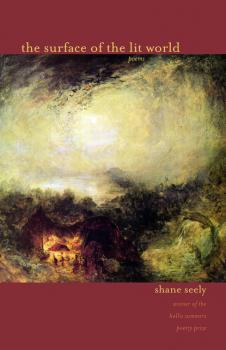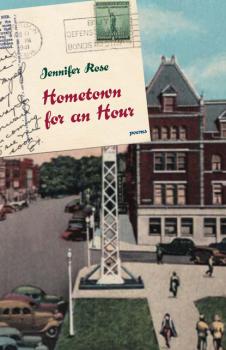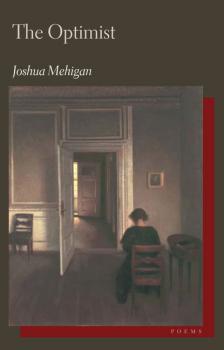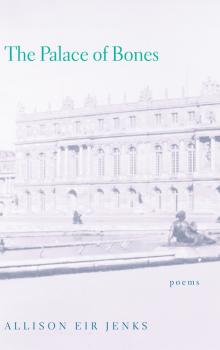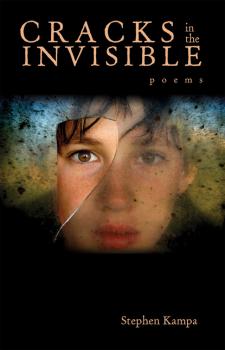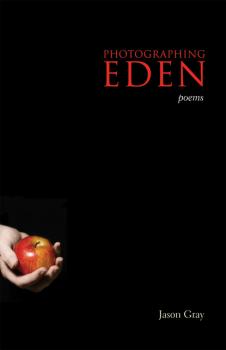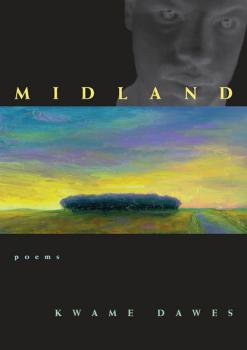ТОП просматриваемых книг сайта:
Hollis Summers Poetry Prize
Скачать книги из серии Hollis Summers Poetry PrizeАннотация
In The Surface of the Lit World, Shane Seely draws on a wide range of sources—from personal memory to biblical narrative—to explore the stories that we tell ourselves about ourselves, the ways in which we make meaning of our lives. Seely delves into the ways in which family and environment shape us. Poems ranging from terse, meditative lyrics to more direct narratives examine the relationship between what lies visible on the lit surface and what lies just beneath. In addition to first-person autobiographical narratives, there are ekphrastic poems; poems that explore narratives from mythology and religion; and poems based on news reports, radio stories, and audio recordings. Regardless of the approach, the central questions are the same: How do we sense the world we live in? What do the institutions to which we turn for meaning—family, religion, art, literature, science—offer us, and in what ways do they fail us? The answers may depend on where we dare to look.
Аннотация
To take the mess of life and make meaning from it is what all poets seek to do. For Will Wells , recipient of the thirteenth annual Hollis Summers Poetry Prize, this includes reaching across centuries and continents, into the minds and hearts of disparate individuals—Albert Einstein, Andrea Yates, the traveler from Porlock, Dante, or Holocaust survivors, including his own grandmother—to extract the personal value embedded there for him. By turns funny, shocking, gentle, and musing, the poems of Unsettled Accounts reflect Will Wells ’s constant attention to his environment and to his past—and to our environment and our past—and his persistent effort to keep them real and whole by turning them into art. Ping-Pong with the Nazis Bored couriers have kicked off boots and set their pipes aside, a Dutch interior. The slapped ball clacks over the table like a telegraphic code, then trickles like faint hope across the marble floor. How quickly he bends to retrieve it and puts it back in play, the Jewish boy living with false papers in a villa owned by his mother’s Gentile friends, and now commandeered by retreating Germans as divisional headquarters. The young blond soldiers, deferential to a social better, muss his blond locks like the kid brothers back in the fatherland, like big brothers steeped in genial menace. He begs another game, so they relent. As the ball resumes its chatter across the no-man’s-land strung with a net, he calculates the risk that each shot brings. And so do they. He holds his pee and serves.
Аннотация
In his provocative, brave, and sometimes brutal first book of poems, Roger Sedarat directly addresses the possibility of political change in a nation that some in America consider part of “the axis of evil.” Iranianon his father’s side, Sedarat explores the effects of the Islamic Revolution of 1979—including censorship, execution, and pending war—on the country as well as on his understanding of his own origins. Written in a style that is as sure-footed as it is experimental, Dear Regime: Letters to the Islamic Republic confronts the past and current injustices of the Iranian government while retaining a sense of respect and admiration for the country itself. Woven into this collection are the author’s vividdescriptions of the landscape as well as the people of Iran. Throughout, Sedarat exhibits a keen appreciation for the literary tradition of Iran, and inmaking it new, attempts to preserve the culture of a country he still claims as his own. Thigh With honesty of homemade butter, paddle-churned cream (eshta in Arabic, ecstasy foaming to the brim), a woman river-bathes, sheet of oil-black hair breaking in rapids, cut lemon scintillating olive skin free of tree-stumped chador, skirts within skirts, peal of her bell-body rung muffled in Iran heat—a splash of white. The rhythm of pumice scraping her feet, sandbar against warm current, frothy cape a bee-bubbled hive, honeyed trace curling to her bare knees, thick transparent lather. At a Tehran bazaar endless gold-stores could never return me anywhere pure.
Аннотация
In her second collection of poems, Jennifer Rose writes primarily of places and displacement. Using the postcard’s conventions of brevity, immediacy, and, in some instances, humor, these poems are greetings from destinations as disparate as Cape Cod, Kentuckiana, and Croatia. Rich in imagery, deftly crafted, and imbued with a lightness of voice, these poems are also postmarked from poetry’s more familiar provinces of love, nature, and loss.
Аннотация
Gravel and Hawk dwells on the physical and cultural landscapes of the Texarkana border region, an area of stark natural beauty and even starker manifestations of its human habitation: oil derricks and pump jacks, logging trucks, chicken houses, come-to-Jesus billboards, and greasy catfish joints, a patchwork of dying farm towns and ragtag municipalities laced together by county roads, state highways, and that treacherous, rust-hued slurry known as the Red River. Gravel and Hawk charts the emotional landscape of a single extended family, its history of loss and gain, and, especially, its encounters with violent death. It is an eminently readable collection, rooted in a distinctly American place and united by a poetic voice that is honest, sophisticated, and persuasive.
Аннотация
In Joshua Mehigan’s award-winning poetry, one encounters a lucid, resolute vision driven by an amazing facility with the metrical line. Most of the poems in The Optimist unapologetically employ traditional poetic technique, and, in each of these, Mehigan stretches the fabric of living language over a framework of regular meter to produce a compelling sonic counterpoint. The Optimist stares at contemporary darkness visible, a darkly lit tableau that erases the boundary between the world and the perceiving self. Whether narrative or lyric, dramatic or satirical, Mehigan’s poems explore death, desire, and change with a mixture of reason and compassion. In choosing The Optimist for the Hollis Summers Poetry Prize, final judge James Cummins, wrote: “The world is given its due in these poems, but its due is the subjective voice making ‘objective’ reality into the reality of art. To do this Mehigan accesses a tradition of voices—the echoes in The Optimist are, to name a few, of Frost, Robinson, Kees, and Justice; and more in terms of point of view, Bishop and Jarrell—to form with great integrity his own. It isn’t that Mehigan is concerned more with what’s outside himself than inside; nor merely that he travels the highway between the two with such humility and grace. It’s also that these voices, this great tradition, infuses his line with what the best verse, metrical or free, must have: wonder.”
Аннотация
The Palace of Bones by Allison Eir Jenks is an often stark and startling vision of the way we live, the places we inhabit, and the relics we make to comfort ourselves. Haunted by a quiet, unquenchable longing, Jenks expertly and calmly guides the reader through a vivid dreamscape in this first full-length collection of poems. The Palace of Bones was selected by final judge and Pulitzer Prize winner Carolyn Kizer. At once dark in its vision and light in its tone, this remarkable book is its author's self-confident invitation for us to join her in a world she knows intimately and has made almost familiar if not entirely safe. The Palace of Bones is a stunning debut.
Аннотация
Stephen Kampa ’s poems are witty and restless in their pursuit of an intelligent modern faith. They range from a four-line satire of office inspirational posters to a lengthy meditation on the silence of God. The poems also revel in the prosodic possibilities of English’s high and low registers: a twenty–one line homage to Lord Byron that turns on three rhymes (one of which is “eisegesis”); a sestina whose end words include “sentimental,” “Marseilles,” and “Martian;” sapphics on the death of Ray Charles; and intricately modulated stanzas on the 1931 Spanish–language movie version of Dracula . Despite the metaphysical seriousness, there is always an undercurrent of stylistic levity — a panoply of puns, comic rhymes, and loving misquotations of canonical literature — that suggests comedy and tragedy are inextricably bound in human experience.
Аннотация
Photographing Eden presents the first full-length collection of poems by a major new talent. The work meditates on several ideas, the crux of which is Eden: spirituality, environmentalism, and the relationships between men and women. Observing, often through the lens of a camera, our state in the world, the poems try to focus sharply on what often seems a blur. The poems are always attentive to artistic mediums and the craft behind them because our struggle is to make something perfect in the imperfect world in which we live, while acknowledging the impossibility of that quest. Gray’s poems range all over, from adventures in Egyptian ruins with machine-gun-toting tourist police to the western edge of the foggy Irish coastline, and to the mythic past, where Adam and Eve visit a zoo and Eden has become a nature preserve.
Аннотация
The winning manuscript of the fourth annual Hollis Summers Poetry Prize is also the exciting American debut by a poet who has already established himself as an important international poetic voice. Midland , the seventh collection by Kwame Dawes, draws deeply on the poet's travels and experiences in Africa, the Caribbean, England, and the American South. Marked equally by a lushness of imagery, an urgency of tone, and a muscular rhythm, Midland , in the words of the final judge, Eavan Boland, is “a powerful testament of the complexity, pain, and enrichment of inheritance…It is a compelling meditation on what is given and taken away in the acts of generation and influence. Of a father’s example and his oppression. There are different places throughout the book. They come willfully in and out of the poems: Jamaica. London. Africa. America. But all the places become one place in the central theme and undersong here: which is displacement…The achievement of this book is a beautifully crafted voice which follows the painful and vivid theme of homelessness in and out of the mysteries of loss and belonging.” Midland is the work of a keen and transcendent intellect, a collection of poems that speaks to the landscape from inside, from an emotional and experiential place of risk and commitment.

